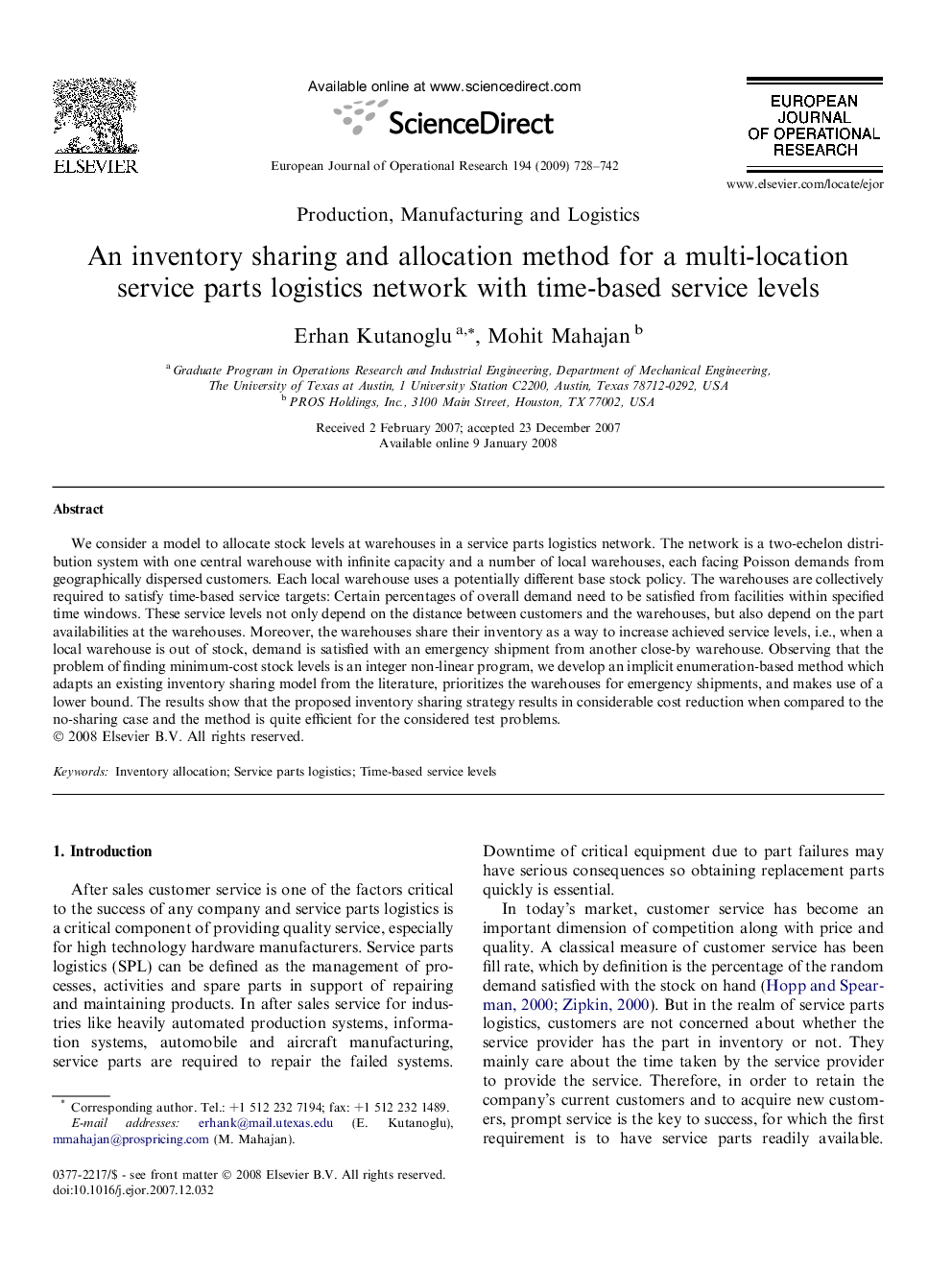| Article ID | Journal | Published Year | Pages | File Type |
|---|---|---|---|---|
| 477335 | European Journal of Operational Research | 2009 | 15 Pages |
We consider a model to allocate stock levels at warehouses in a service parts logistics network. The network is a two-echelon distribution system with one central warehouse with infinite capacity and a number of local warehouses, each facing Poisson demands from geographically dispersed customers. Each local warehouse uses a potentially different base stock policy. The warehouses are collectively required to satisfy time-based service targets: Certain percentages of overall demand need to be satisfied from facilities within specified time windows. These service levels not only depend on the distance between customers and the warehouses, but also depend on the part availabilities at the warehouses. Moreover, the warehouses share their inventory as a way to increase achieved service levels, i.e., when a local warehouse is out of stock, demand is satisfied with an emergency shipment from another close-by warehouse. Observing that the problem of finding minimum-cost stock levels is an integer non-linear program, we develop an implicit enumeration-based method which adapts an existing inventory sharing model from the literature, prioritizes the warehouses for emergency shipments, and makes use of a lower bound. The results show that the proposed inventory sharing strategy results in considerable cost reduction when compared to the no-sharing case and the method is quite efficient for the considered test problems.
